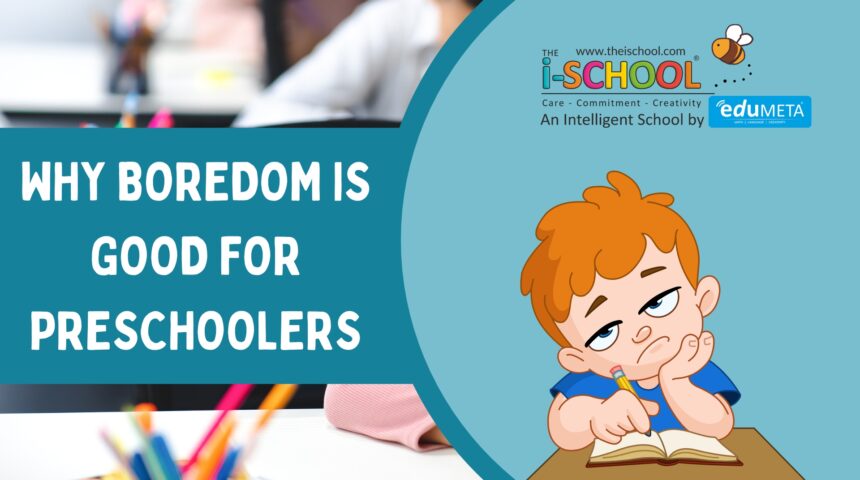Why Boredom is Good for Preschoolers

In today’s fast-paced world, we often feel the need to keep children busy with structured activities. Whether it’s preschool lessons, organized playdates, or screen time, there’s a tendency to fill every moment of a child’s day with something to do. However, what if we told you that boredom is actually beneficial for preschoolers? In fact, unstructured time is essential for fostering creativity, self-reliance, and problem-solving skills in young children.
1. Boredom Sparks Imagination
When preschoolers experience boredom, they are more likely to rely on their imagination to create their own entertainment. Without constant guidance or structured activities, children can explore their creative minds, turning ordinary objects into something magical. A cardboard box becomes a spaceship, a blanket fort transforms into a secret hideout, and a simple garden becomes a world of adventure. Allowing preschoolers to find ways to entertain themselves fosters a sense of independence and creative thinking.
2. Encourages Problem-Solving Skills
When children are bored, they have the opportunity to figure out how to fill their time on their own. This process requires problem-solving. Should they build a tower with blocks, draw a picture, or engage in pretend play? The absence of immediate stimulation encourages preschoolers to think critically and make decisions about what to do next. In the long run, these moments of self-directed play help children develop essential problem-solving and decision-making skills that will benefit them throughout life.
3. Builds Emotional Resilience
Learning how to handle boredom is an important step in emotional development. Preschoolers who are given unstructured time learn how to manage feelings of frustration or restlessness. Rather than seeking external solutions, they develop patience and the ability to cope with moments of inactivity. Over time, this builds emotional resilience, as children become more comfortable with uncertainty and the ability to self-soothe when things are not immediately exciting or engaging.
4. Promotes Independence and Self-Reliance
One of the key benefits of allowing preschoolers to experience boredom is that it encourages independence. When children are always given something to do or someone to entertain them, they can become dependent on external stimulation. However, when they are left to their own devices, they learn to rely on themselves to find enjoyment and fulfillment. This self-reliance is an essential trait that supports future academic success, personal growth, and emotional well-being.
5. Unstructured Time Boosts Social Skills
When preschoolers are given time to play without a structured agenda, they often gravitate towards social interaction with their peers or siblings. During unstructured play, children learn to negotiate, share, and collaborate in ways that structured activities may not allow. They develop important social skills such as cooperation, empathy, and conflict resolution. These skills are vital for building strong friendships and healthy relationships as they grow older.
6. Helps Children Discover Their Interests
Boredom provides children with the space to explore their own interests and passions. When preschoolers are constantly guided by structured activities, they may not have the opportunity to discover what they truly enjoy. Unstructured time allows them to explore different types of play, from arts and crafts to physical activities, enabling them to discover what brings them joy. Over time, this can lead to a deeper understanding of their unique strengths and talents.
Final Thoughts
At eduMETA THE i-SCHOOL, we believe that fostering creativity and independence in preschoolers is essential for their overall development. While structured activities are important, we also recognize the value of boredom in promoting imagination, problem-solving, and emotional resilience. Unstructured time allows children to explore their world, develop their individuality, and grow into confident, creative thinkers.
So, the next time your preschooler says, “I’m bored,” embrace it! It’s an opportunity for them to discover, create, and grow in ways they never imagined.
